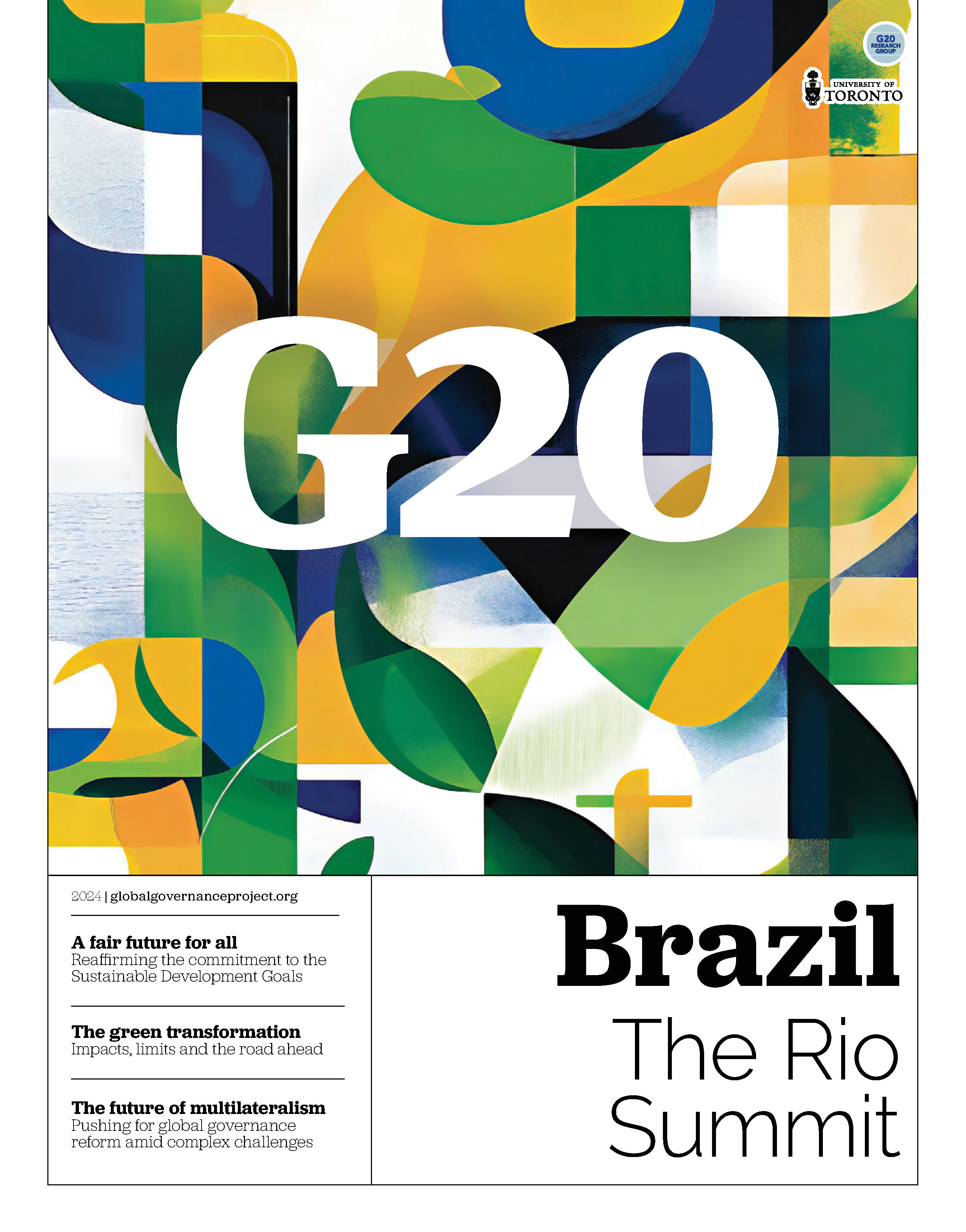
Global Governance Program
Including the G7 Research Group, G20 Research Group,
BRICS Research Group and the Global Health Diplomacy Program

 |
Global Governance Program |
 |

Tackling Global Challenges through Collective Action – Portugal’s Contributions
Luís Montenegro, Prime Minister, Portugal
Note: Special feature of G20 Brazil: The 2024 Rio Summit , edited by John Kirton and Madeline Koch.
In an era marked by complex global challenges and geopolitical dynamics, cooperation among countries and respect for international law are essential pillars of a stable and just world order.
Multilateralism has been a constant priority in Portugal’s foreign policy. As an active participant in international organisations, we find the G20 an extremely valuable political forum to strengthen multilateralism and shape global solutions that reflect different geographical interests.
We were honoured and encouraged by Portugal’s invitation to the G20 during Brazil’s 2024 presidency. We see it not only as reflection of the strong ties and shared international goals between our countries, but also an acknowledgement of Portugal’s international role as a bridge builder – a country committed to dialogue, mediation and an advocate for the collective good.
The G20 represents 85% of global gross domestic product, over 75% of global trade, and two-thirds of the world’s population. Its representativeness and diversity in composition make the forum a powerful and challenging space for dialogue and collaboration, underscoring the importance of multilateralism. Multilateral approaches are crucial for sustainable economic growth, and for addressing broader issues such as poverty, climate change and global inequality.
Portugal strongly aligns with the priorities of the Brazilian presidency for the G20, whether in pushing for the reform of the system, in mobilising financial resources to combat climate change or in creating a global alliance to fight hunger and poverty.
We firmly believe that a country’s greatest investment is in the next generations. To guarantee a peaceful, prosperous and stable future, we need to ensure access to education, nutrition, health care and opportunities for all. This is why Portugal was at the forefront as a key supporter of Brazil’s G20 Alliance Against Hunger and Poverty, which will be a fundamental mechanism for exploring synergies between the various global, regional and local efforts to fulfil Sustainable Development Goals 1 and 2.
Beyond poverty alleviation, Portugal is also committed to fighting climate change, which disproportionately affects the most vulnerable populations, who are often the lowest emitters. Climate change not only threatens the environment – it exacerbates inequalities and undermines the livelihoods of billions as well.
We are seeking innovative solutions to tackle this global challenge. The debt-for-climate swap model has gained significant traction. Portugal is exploring this model in partnership with Cabo Verde, where a portion of its debt is redirected into a climate fund. I visited the country and saw first-hand how this tool can serve as a blueprint for other partners while preserving local ownership.
Additionally, Portugal has actively participated in the development of the High-Level Principles on Bioeconomy, aimed at driving the ecological transition towards a more sustainable global economy. These principles cover matters such as food security or biodiversity, while addressing climate change mitigation and job creation. We believe these guidelines will shape future discussions on sustainable development in the G20 and beyond.
One of the most critical issues on the G20 agenda is the reform of global governance institutions, which are no longer adequately equipped to address the current challenges. Although these decisions must be taken at the appropriate forums, the G20 can provide an important platform for those discussions.
The decision by the G20 to grant permanent membership to the African Union and to establish a 25th chair at the International Monetary Fund’s Executive Board for Sub-Saharan Africa are steps in the right direction. We also strongly support the reform of the Bretton Woods system, as representation of emerging economies within these institutions is crucial for enhancing their effectiveness. The United Nations Security Council – for which Portugal is a candidate for a non-permanent seat in 2027–2028 – must be reformed to reflect contemporary geopolitical realities.
Portugal remains fully committed to working within all multilateral forums to tackle common global challenges. Whether through poverty alleviation, climate action or institutional reform, we believe that collective action is the only path to effectively achieve continuous progress and a sustainable, rules-based and just world order.
In the words of the Brazilian poet Cecília Meireles, “the future is not a gift, it is a battle”. Portugal stands ready to join this battle for the future, contributing to a more peaceful, prosperous and equitable world.
|
This Information System is provided by the University of Toronto Library |
All contents copyright © 2026. University of Toronto unless otherwise stated. All rights reserved.